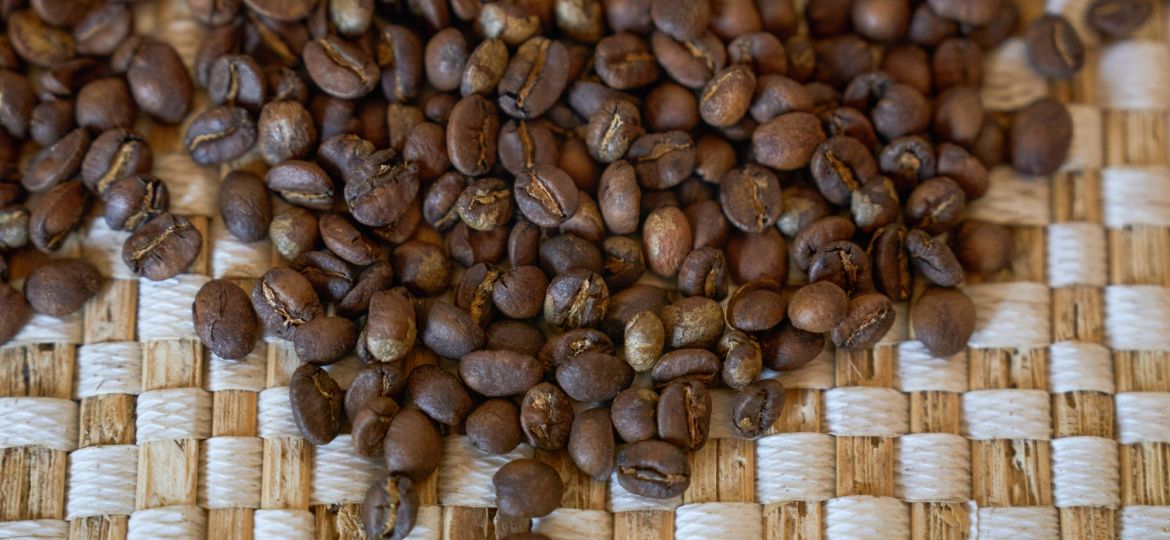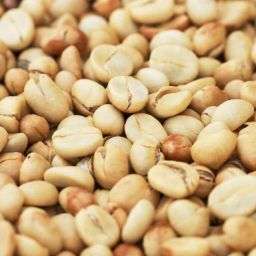
Pacamara coffee beans represent a unique hybrid, blending the genetic makeup of Pacas and Maragogype Arabica beans. Originating in 1958 in El Salvador, this variety was created to combine the best traits of its parent beans. Distinguished by its complex acidity and a flavor profile that spans fruity to floral notes, particularly jasmine, Pacamara stands out in the coffee world for its distinctive taste and aroma.
Key Takeaways
- Distinctive Flavor Profile: Pacamara is celebrated for its rich, complex flavors that include notes of butterscotch, chocolate, and various fruits, alongside a vibrant acidity.
- Benefits of Drinking Pacamara Coffee: Beyond its taste, Pacamara offers health benefits, such as being naturally sweet without artificial additives, providing an energy boost without caffeine jitters.
- Farming Advantages: The cultivation of Pacamara coffee brings several advantages, including resistance to wind and the ability to thrive at high altitudes, which contributes to its unique taste.
History and Development
The journey of Pacamara coffee beans began in El Salvador, with the cross-breeding of Pacas and Maragogype varieties by the Salvadoran Institute for Coffee Research (ISIC). This endeavor aimed to harness the superior qualities of each parent bean, resulting in a bean that offered both the hardiness of Pacas and the large bean size of Maragogype.
The development of Pacamara marked a significant milestone in coffee breeding, emphasizing the potential for innovation within the industry. Its creation was not just a scientific achievement but also a response to coffee connoisseurs’ growing demand for distinctive and high-quality coffee experiences. The commercial viability of Pacamara, realized after years of careful breeding and research, has allowed this variety to gain international recognition and become a beloved choice among specialty coffee enthusiasts.
The global spread of Pacamara beans reflects a broader trend in the coffee industry towards diversification and the pursuit of exceptional flavor profiles. From its origins in El Salvador, Pacamara has found its way into the highlands of Guatemala, Costa Rica, and Colombia, where its cultivation benefits from the rich volcanic soils and high altitudes typical of these regions.
The story of Pacamara coffee beans is one of innovation, quality, and global appreciation. It highlights the endless possibilities within the coffee industry to create varieties that challenge traditional flavor profiles and offer coffee lovers new experiences. As Pacamara continues to be cultivated and enjoyed around the world, it serves as a testament to the rich diversity and potential of coffee.
Characteristics and Profile
Pacamara coffee beans are renowned for their unique flavor profile, characterized by an intense and vibrant acidity. This acidity is complemented by a creamy texture that makes each sip a rich experience.
The flavor notes of Pacamara are diverse, encompassing butterscotch and chocolate, which provide a sweet foundation. From this base, the profile expands to include a range of fruity tastes, such as berries, citrus fruits, and even tropical notes in some cases.
The physical and growth characteristics of Pacamara plants are as distinctive as their flavor profile. These plants are a hybrid, inheriting traits from both Pacas and Maragogype parent varieties. Pacamara plants are known for their dense and compact stature, a trait that offers advantages such as wind resistance.
However, this hybrid variety also brings challenges, including a high susceptibility to diseases like leaf rust, which can affect yield and require more intensive care and maintenance.
Cultivation and Distribution
Pacamara coffee thrives under specific conditions, notably at high altitudes above 4,000 feet. These conditions are typical of mountainous regions, where cooler temperatures and rich volcanic soils are prevalent. Such environments are conducive to the development of Pacamara’s complex flavor profile, allowing the beans to develop their signature sweetness and acidity.
Beyond its native El Salvador, Pacamara has been successfully cultivated in other Latin American countries, including Guatemala, Costa Rica, and Colombia. These regions offer the ideal climatic and soil conditions that Pacamara requires.
In Guatemala and Costa Rica, the highland areas provide the cool temperatures and volcanic soil that enhance the bean’s natural flavors. Colombia, with its diverse microclimates, also presents a suitable environment for Pacamara, allowing for the cultivation of this variety in different parts of the country.
The distribution of Pacamara across these regions underscores the bean’s adaptability and the coffee community’s interest in preserving and proliferating this unique variety. As a result, Pacamara has become a symbol of quality and innovation in the coffee industry, celebrated for its exceptional taste and the meticulous care it demands from seed to cup.
Brewing and Enjoyment
To fully appreciate the unique taste profile of Pacamara coffee beans, certain brewing methods are recommended. The French Press, pour-over, and drip brewing methods are particularly effective in capturing the essence of Pacamara’s complex flavors.
These methods allow for a slow extraction, which is key to releasing the beans’ vibrant acidity and rich, creamy texture. Furthermore, the light to medium roast is ideal for Pacamara beans, as it preserves their intricate flavor nuances, preventing the roast from overpowering the bean’s natural characteristics.
FAQs
What is the caffeine content of Pacamara coffee beans? Pacamara coffee beans are known for their relatively low caffeine content, making them a suitable option for those seeking a milder energy boost.
How does Pacamara compare to Geisha coffee beans? Pacamara and Geisha coffee beans are both highly regarded in the specialty coffee scene for their unique flavor profiles. While Pacamara is known for its fruity and floral notes, Geisha tends to have a more pronounced acidity and a complex array of flavors that can include jasmine, bergamot, and tropical fruits.
Any tips for brewing Pacamara coffee? For the best results, use freshly ground Pacamara beans and opt for a brewing method that allows for a controlled extraction process, such as pour-over or French Press. Experiment with the grind size and water temperature to find the perfect balance for your taste preference.
Final Thoughts
Pacamara coffee beans stand out in the world of specialty coffee due to their unique origin, complex flavor profile, and the meticulous cultivation they require. Their distinct taste, combining vibrant acidity with a symphony of fruity and floral notes, makes them a sought-after choice among coffee enthusiasts.
The role of Pacamara in the specialty coffee scene is significant, symbolizing the industry’s continuous pursuit of quality and uniqueness. As appreciation for specialty coffee grows, the future prospects for Pacamara beans look promising, with potential for further exploration and innovation in cultivation, brewing, and enjoyment methods. Pacamara not only offers a remarkable cup of coffee but also represents the rich diversity and potential of coffee as a whole.









